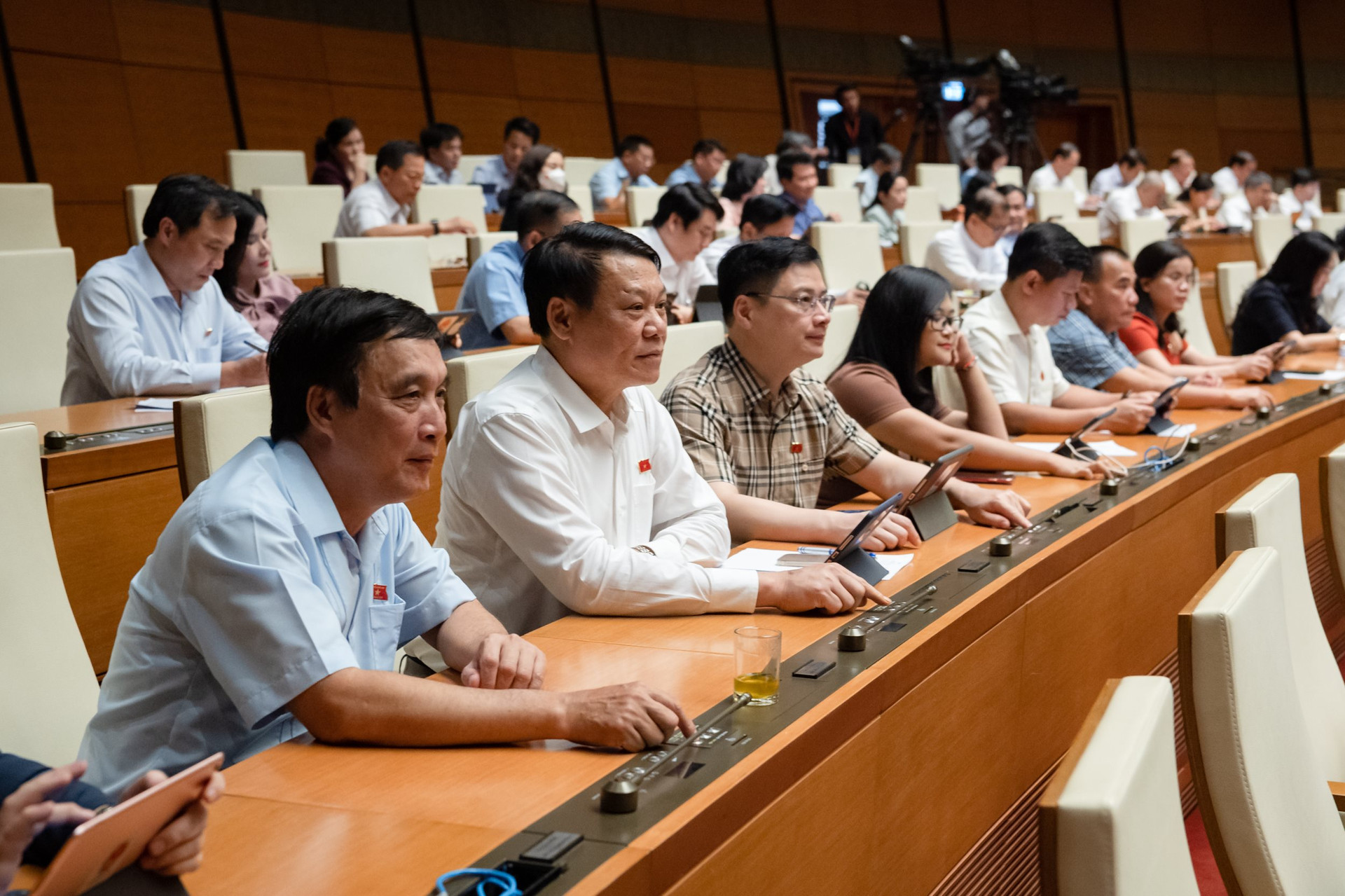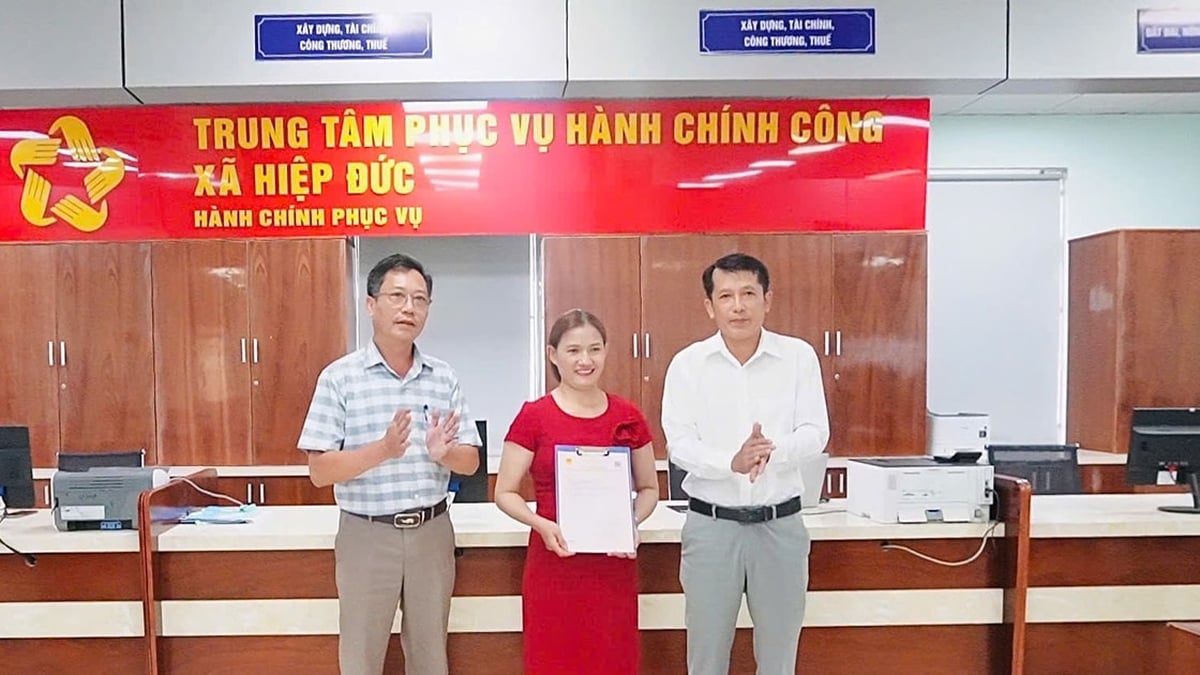The Law on Prices (amended) after being absorbed and revised by the National Assembly consists of 8 Chapters and 75 Articles regulating the rights and obligations of organizations and individuals trading in goods and services and consumers in the field of prices; Duties and powers of state management agencies on prices and price appraisal; State price management and regulation activities; synthesis, analysis, forecasting of market prices, price databases; Price appraisal; Specialized price inspection, inspection of compliance with the law on prices and price appraisal; Implementation provisions...
The Law on Prices (amended) passed by the National Assembly at the 5th Session has many new points to overcome some limitations and shortcomings of the current law. Regarding the scope of regulation, the law supplements regulations on price databases, accordingly: This Law stipulates the rights and obligations of agencies, organizations, individuals, and consumers in the field of prices and price appraisal; State price management and regulation activities; synthesis, analysis, and forecasting of market prices; price database; price appraisal; specialized price inspection, inspection of compliance with the law on prices and price appraisal.

The Law on Prices (amended) stipulates: Price stabilization is the implementation by competent state agencies of solutions and measures as prescribed in this Law to stabilize the prices of goods and services when prices fluctuate abnormally within a certain period of time.
Supplementing regulations on valuation certificates, which are documents issued by valuation enterprises and branches of valuation enterprises after the completion of valuation activities to notify customers, related organizations and individuals (if any) stated in the valuation contract about the value of the property to be valued and the main contents of the valuation report.
The Law on Prices (amended) also amends and supplements prohibited acts in the field of prices and price appraisal, such as: Spreading false and inaccurate information about the socio -economic situation, causing disruption of market information, prices of goods and services; Taking advantage of emergency situations, incidents, disasters, natural disasters, fires, epidemics to increase the selling price of goods and services inconsistent with fluctuations in total costs compared to normal conditions for profit; Signing price appraisal certificates and price appraisal reports that are not in accordance with the professional field, notices of state agencies on the permitted practice fields of price appraisal enterprises; signing price appraisal certificates and price appraisal reports when not maintaining the prescribed conditions for registration to practice price appraisal...
Supplementing the tasks and powers of the Provincial People's Committee in proposing to the Ministry of Finance , Ministries, and ministerial-level agencies managing sectors and fields to submit to the Government for submission to the National Assembly Standing Committee for consideration and adjustment of the List of goods and services with price stabilization, the List of goods and services with State-determined prices, and price stabilization; proposing to the Ministry of Finance to submit to the Government for promulgation and adjustment of the List of essential goods and services that must declare prescribed prices.
The Law on Prices (amended) also provides specific regulations on price declaration, price posting, and price reference. Accordingly, the Ministry, the ministerial-level agency managing the industry and sector, and the Provincial People's Committee shall prescribe the economic and technical characteristics of goods and services subject to price declaration.
Purpose, requirements for checking price formation factors, the Law on Prices (amended) stipulates that prices of other goods and services have unusual fluctuations when emergencies, incidents, disasters, natural disasters, epidemics occur or cases serving management and operation work under the direction of the Prime Minister, Ministers, Heads of ministerial-level agencies, Chairmen of ministries, and provincial People's Committees to serve price management and operation work.
The Law on Prices (amended) also specifically regulates the Valuation Enterprise, Conditions for granting a certificate of eligibility to conduct valuation services; Rights and obligations of valuation enterprises; Valuation Certificate and Valuation Report; Rights and obligations of valuation customers and related organizations and individuals recorded in the valuation contract; Determining the price of valuation services; Methods for resolving disputes regarding valuation contracts.
For inspection work, it is necessary to ensure compliance with the principles prescribed in the law on inspection. The work of inspecting compliance with the law on prices and price appraisal must ensure the following principles: Implementation according to plan, or according to the direction of competent authorities or when detecting violations or signs of violations; No duplication or overlap in scope or time with state inspection and audit activities, inspection of the same field for a unit; Objectivity, publicity, transparency, correct authority, order and procedures according to the provisions of law; Limiting obstruction and impact on the activities of the inspected subjects...
Previously, the National Assembly held a plenary session in the hall and voted to pass the Resolution approving the 2021 state budget settlement with 473 National Assembly deputies participating in the vote in favor, accounting for 95.75% of the total number of National Assembly deputies.
Accordingly, the National Assembly approved the 2021 state budget settlement; total state budget expenditures were balanced; the state budget deficit was equal to 2.52% of gross domestic product (GDP).
The National Assembly assigned the Government to publicly disclose the 2021 state budget settlement in accordance with the provisions of law. At the same time, direct ministries, central agencies, People's Committees at all levels and units managing and using the state budget to implement drastic and synchronous measures to strengthen financial discipline, management, use and settlement of the state budget, and avoid repeating the shortcomings and limitations that have lasted for many years. In 2023, continue to implement unfinished resolutions in the Resolutions of the National Assembly and the National Assembly Standing Committee related to the state budget settlement; have specific solutions to overcome the shortcomings and limitations.
Strictly handle violations. Review and clarify the responsibilities of leaders, collectives and individuals of ministries, central agencies, People's Committees at all levels and units managing and using the state budget who have violated the preparation and implementation of estimates, management and use of the state budget; prepare and submit the 2021 state budget settlement report later than the prescribed time.
Continue to focus on forecasting and making estimates for land use fees to ensure adherence to land use planning and plans for each period and feasibility. Strictly manage and use the increased state budget revenue to ensure efficiency, avoiding loss and waste. Correct and overcome shortcomings and limitations in the establishment, management and use of the state budget. Make estimates for state budget expenditures to ensure adherence to requirements and feasibility.
Pay attention to and focus on investment preparation, budget preparation, allocation, organization and implementation of investment projects. Speed up payment of completed volume and settlement of programs and projects. Review and accurately determine outstanding debt figures for basic construction of state budget capital.
Strictly manage expenditures transferred from the state budget. Continue to control the state budget deficit and public debt to ensure national financial security and macroeconomic stability. Urgently implement the conclusions and recommendations of the State Audit on the state budget settlement in 2021 and 2020 and earlier.
Direct competent authorities to continue reviewing, completing dossiers and considering handling tax debt relief, late payment penalty debt relief, and late payment interest until June 30, 2023 to ensure correct subjects and correct authority.
Urgently research and complete a roadmap to shorten the process and time for annual state budget settlement and report to the National Assembly at the 6th Session in 2023 to strengthen discipline and order and improve the efficiency of state budget management and use.
In addition, the Resolution of the National Assembly also assigns specific tasks to the State Audit; People's Councils of provinces and centrally-run cities. Along with that, the National Assembly Standing Committee, the Finance and Budget Committee, the Ethnic Council, other National Assembly Committees, National Assembly delegations, National Assembly deputies and People's Councils at all levels, within the scope of their tasks and powers, shall supervise the implementation of this Resolution.
Source



































































































Comment (0)